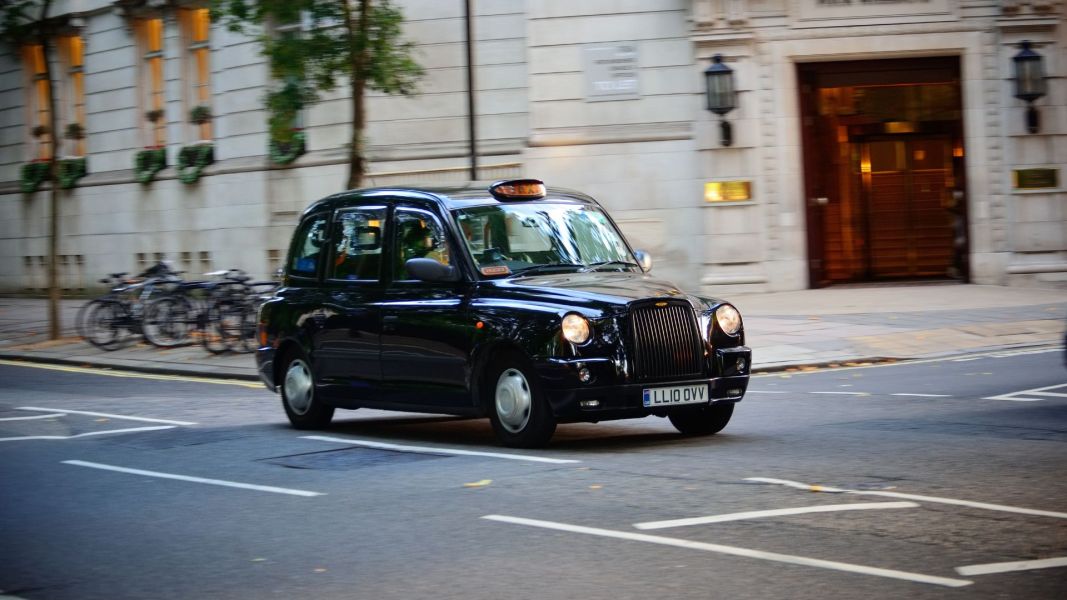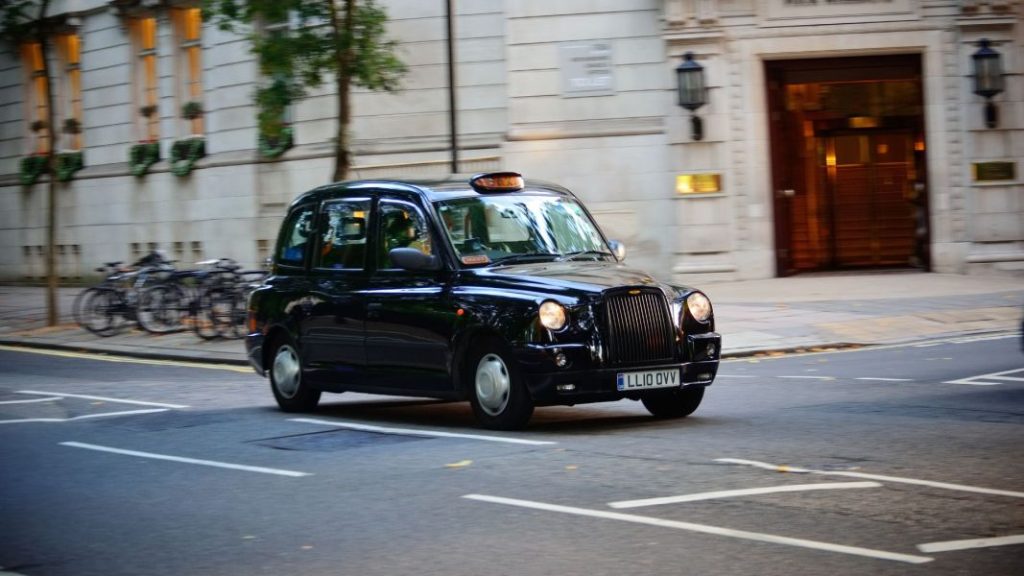Black cabs represent more than just a means of transport; they are committed to sustainable urban mobility. As cities pursue methods to reduce their carbon footprints and enhance public transport systems, the importance of eco-friendly vehicles grows. Among these, black cabs showcase a unique combination of tradition and innovation, particularly with the increasing integration of hybrid and electric models.

The Transformation of Urban Mobility Solutions
The iconic design of black cabs has undergone significant changes over time, adapting to the growing demand for sustainable travel options. Introducing electric and hybrid variations into their fleets has altered the perception of these vehicles, positioning them as the preferred choice for environmentally conscious individuals.
Unlike traditional automobiles that contribute heavily to urban pollution, the latest models are crafted with ecological concerns at the forefront. This aims to reduce emissions and aligns with government initiatives that promote greener transportation alternatives.
For operators, the move towards electric or hybrid vehicles presents a compelling case for change. The financial benefits can be substantial, as these vehicles offer lower running costs due to reduced fuel consumption.
Moreover, the availability of financial incentives, such as grants for electric vehicle acquisition, can further encourage this transition. For instance, the presence of Hackney Cabs for sale in the marketplace signals an expanding commitment to providing sustainable, accessible options for urban mobility.
Economic Advantages of Green Vehicles
Embracing eco-friendly vehicles yields numerous advantages beyond regulatory compliance. For businesses operating these vehicles, the long-term savings can be significant. The reduced dependence on traditional fuels leads to lower operational costs, which can considerably impact profitability, especially amid fluctuating fuel prices. The lower maintenance costs associated with electric vehicles—thanks to fewer moving parts—add another financial benefit.
Integrating modern vehicles also enhances passengers’ experiences. Electric variants are typically quieter and provide a smoother ride, increasing comfort for those navigating urban environments. This comfort level can increase customer satisfaction and brand loyalty, as consumers become more inclined to choose services that reflect their commitment to sustainability.
Enhancing Urban Air Quality
The widespread adoption of electric and hybrid models can significantly improve air quality in cities. With decreasing emissions from transportation, urban areas can experience a reduction in smog and pollution, fostering healthier living conditions for residents and contributing to public health. Cleaner air improves the overall quality of life and promotes well-being, demonstrating the far-reaching benefits of transitioning to sustainable transport solutions.
Additionally, this transformation aligns seamlessly with local government initiatives to reduce overall emissions and establish stricter environmental regulations. As urban areas strive to meet these objectives, adopting electric and hybrid vehicles can be a practical solution to fulfilling ecological goals.
Technological Innovations in Eco-Friendly Vehicles
The modernisation of urban transport is further propelled by advancements in technology. Smart features such as real-time route optimisation can enhance efficiency and reduce congestion. These innovations improve the operational effectiveness of green vehicles and provide a better experience for passengers. For instance, predictive analytics can help drivers navigate more efficiently, saving time and minimising energy consumption.
Integrating advanced technologies also facilitates better communication between drivers and passengers, allowing for streamlined operations and improved service delivery. As vehicles become more connected, the innovation potential expands, paving the way for smarter, more efficient urban transport solutions.
The Cultural Significance of Black Cabs
Black cabs are significant in urban culture, often symbolising local heritage. This cultural attachment drives the necessity for maintaining their presence while simultaneously modernising to meet contemporary environmental standards. Citizens recognise the iconic vehicles for their practicality and contribution to the local identity. As such, preserving this character while embracing sustainability becomes crucial for operators.
Additionally, the community appreciates the communal approach these vehicles represent. They provide necessary transportation options for a diverse range of passengers, including those with mobility challenges and elderly individuals. Providing wheelchair-accessible models ensures inclusivity, allowing everyone to access transportation services that meet their needs.
By maintaining this cultural significance and enhancing accessibility, operators can foster a stronger connection with their communities. This dual focus on heritage and sustainability ensures that black cabs remain vital to urban life.
A Future Focused on Sustainability
Increasing awareness of environmental issues has prompted a re-evaluation of urban transport systems’ operations. The movement towards electric and hybrid vehicles is increasingly seen as essential in crafting a sustainable future. Companies committed to these ecological transitions are paving the way for a new standard in urban mobility.
Incorporating sustainable practices into business models aligns with consumer expectations and prepares companies for future regulations aimed at reducing emissions. By prioritising eco-friendly solutions, operators can ensure compliance with potential future legislation and establish themselves as leaders in the industry.
The Role of Government and Policy in Urban Mobility
Of course, government policies play a pivotal role in shaping the direction of urban transport. Initiatives to reduce carbon emissions, such as electric vehicle adoption incentives and charging infrastructure investments, create an environment conducive to sustainable transport solutions. Local authorities can further support this transition by developing designated zones that encourage the use of eco-friendly vehicles.
Additionally, public awareness campaigns highlighting the benefits of sustainable transport can influence consumer choices and encourage the adoption of greener alternatives. Educating the public about the advantages of electric and hybrid solutions strengthens the movement toward reducing environmental impact.
Community Engagement in the Transition to Sustainable Transport
Engaging with local communities is vital in promoting the transition to sustainable mobility solutions. By involving residents in discussions about transportation needs and preferences, operators can better align their services with the community’s expectations. This involvement fosters a sense of ownership and responsibility among citizens, encouraging them to embrace eco-friendly options and become advocates for sustainable practices in their daily lives.
Community engagement initiatives can take various forms, such as workshops, information sessions, or partnerships with local environmental groups. These efforts raise awareness about sustainable transport and demonstrate a commitment to addressing local concerns.
Additionally, soliciting feedback from residents can help identify specific barriers to adopting greener transport solutions, allowing operators to tailor their services more effectively. By actively participating in community dialogues, operators can build trust and support, ensuring a collaborative approach to transforming urban transport systems.
Building a Network of Support
Building a supportive network among various stakeholders is essential to embracing a sustainable future. Collaborations between vehicle manufacturers, operators, and local governments can lead to innovative solutions and shared resources. By working together, these parties can address infrastructure, technology, and community needs challenges.
Creating partnerships with environmental organisations and advocacy groups can further strengthen efforts to promote sustainable transport. These alliances encourage knowledge sharing and align objectives towards a common goal of reducing carbon emissions.
The Path Ahead for Urban Mobility Solutions
As the need for sustainable transport continues to rise, the future of urban mobility solutions lies in the hands of operators willing to embrace change. With advancements in technology and growing public support for eco-friendly practices, black cabs can play a vital role in shaping cities’ transportation landscapes.
By investing in electric and hybrid vehicles, companies can meet the growing demands of consumers, while contributing to a greener future. The commitment to sustainability is more than just a trend; it represents a necessary change that will define the future of urban mobility.
In this transformative journey, the support of local communities and governments will be paramount. Together, they can create a framework that promotes sustainable practices and enriches the urban environment for everyone.
Read More:

Founder Dinis Guarda
IntelligentHQ Your New Business Network.
IntelligentHQ is a Business network and an expert source for finance, capital markets and intelligence for thousands of global business professionals, startups, and companies.
We exist at the point of intersection between technology, social media, finance and innovation.
IntelligentHQ leverages innovation and scale of social digital technology, analytics, news, and distribution to create an unparalleled, full digital medium and social business networks spectrum.
IntelligentHQ is working hard, to become a trusted, and indispensable source of business news and analytics, within financial services and its associated supply chains and ecosystems











